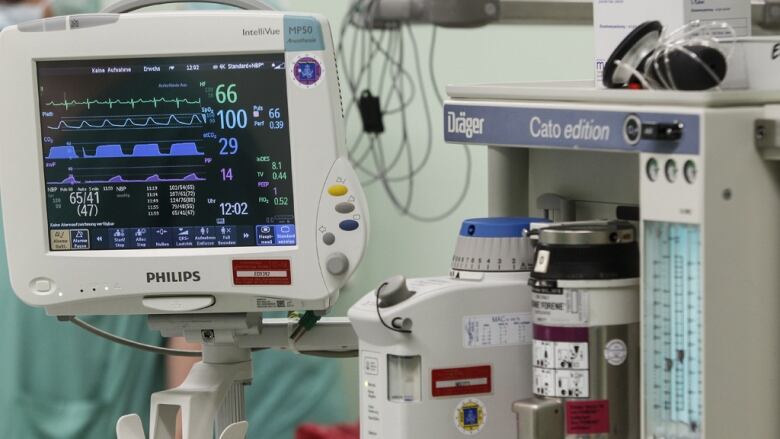Depression eased when ketamine prescribed for pain, U.S. team finds
Ketamine called a possible alternative treatment for severe depression

A U.S.-based drug researcher who led a team that hunted through a massive database of patient records says the anesthetic ketamine shows potential as an antidepressant and should be further studied for its potential as a psychiatric drug.
Doctors currently use ketamine to relieve pain during surgery and it is approved for that purpose.
The drug'spotential to relieve suicidal depression is also well known, but that information is based on anecdotes and small studies rather than a large clinical trial.
Ruben Abagyan, aprofessor in the school of pharmaceutical sciences at the University of California San Diego, said ketamine is a "possible alternative treatment and definitely in particularly difficult cases."
Those cases could include suicidal depression, where the weeks oftreatment that traditional antidepressants require to take effect might be too long, Abagyan said.
Search for beneficial signal
Abagyan is the senior author of a study published in Wednesday's issue of the journal Scientific Reports, based onan analysis of a large U.S. database of adverse effect reports that were made for any reason.
The U.S. Food and Drug Administration's adverse effects database, which contains over 8 million patient records of reports made for a wide range of reasons,is normally used to look for potentially harmful side-effects. But in a twist, the researchers turned this on its head, looking for reduction in depression symptoms among patients who tookketamine.
"If we can look at the reduction of their complaints about depression that can be a signal for the beneficial effect ofketamine,"Abagyansaid.
The study suggests depression was reported half as often among more than 41,000 patients in the database who tookketaminefor pain.
To make that determination, the researchers checked the database for recordsof depression scores among people who took ketamineto alleviate pain in the operating room. They compared it with records in the database of baseline depression scores among the same group of patients.
What's unique about ketamine is how it acts on so many different levels, Abagyan said. In the operating room, it can induce a trance-like state, sedation and memory loss. Depending on the concentration used, agitation, confusion and hallucinations can also result, which the study's authors also attributed to its antidepressant effects.
Abagyan strongly discouraged use of ketamine not prescribed by a doctor with known doses and vendors.
Brief, potent effect
He pressed health officials in the U.S, Canada and Europe to give researchers and the public access to data such as those used in the study, minus names, addresses and dates of birth, to do more of these kinds of studies.
In this country, Health Canada maintains a database of adverse-effect complaints made by doctors and patients.
The analysis also pointed to other drugs with potential antidepressant properties, such as the botulinum toxin used in cosmetic procedures. More research is needed to determine if those people felt less depressed because they looked better.
The ketamine finding supports its known influence as abrief, potent antidepressant effect in those with resistant depression, said Dr. Rupert McShane, a psychiatrist at Oxford Health in the U.K. He was not involved in the U.S. study.
Last month, McShane and other British specialists published a viewpoint in Lancet Psychiatry concluding ketamine can help severely depressed patients, but outcomes need to be formally tracked in national or international registries and its risks closely monitored at specialist centres.
"The treatment with the best evidence of a sustained effect in resistant depression is electroconvulsive therapy, although half will relapse within six months,"McShane said in an email.
"We do not know the long term side-effects of repeated ketamine, so this study suggests that occasional monitoring of renal and liver function may be a good idea. People who have tried to self-manage their depression with illegal ketamine have developed addiction."
The study was funded by University of California San Diego Skaggs School of Pharmacy and Pharmaceutical Sciences.
With files from CBC's Amina Zafar












_(720p).jpg)


 OFFICIAL HD MUSIC VIDEO.jpg)
.jpg)



























































































